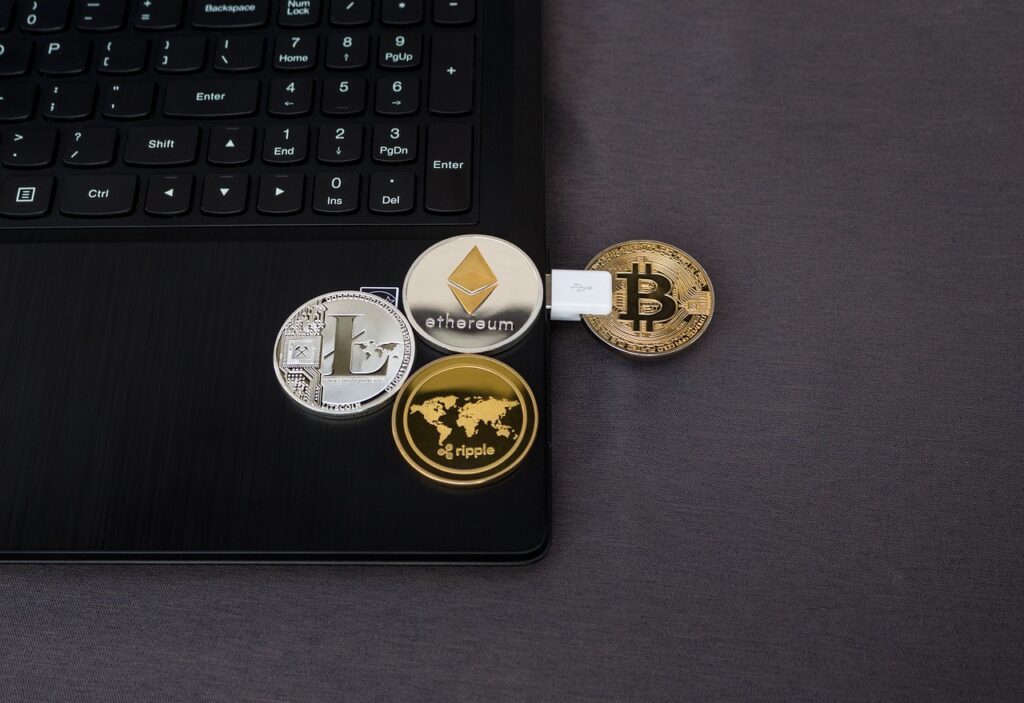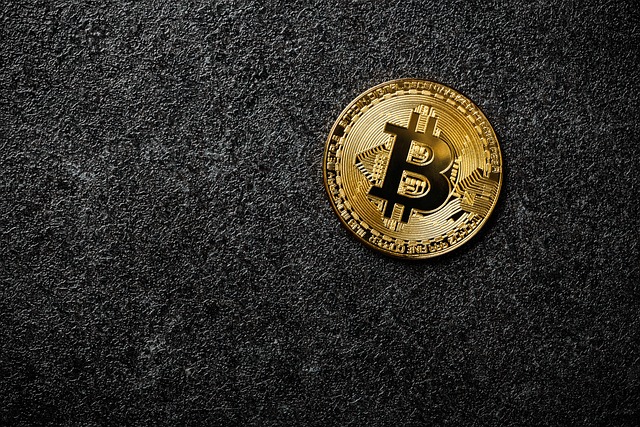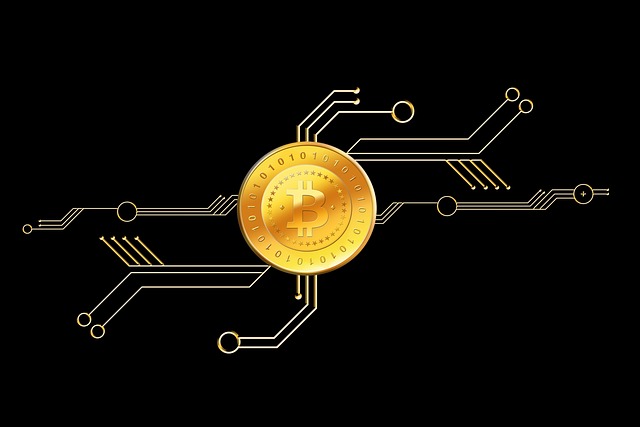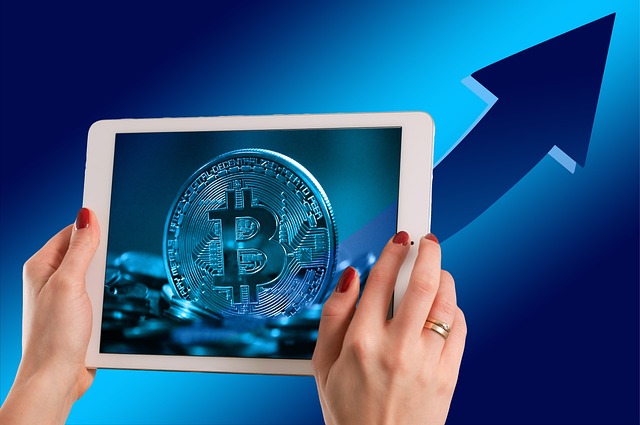DeFi Risk Assessment: Strategies for Smart Investing
DeFi Risk Assessment: Strategies for Smart Investing

Identifying Risks in Decentralized Finance
Decentralized Finance (DeFi) has emerged as an exciting and innovative sector within the cryptocurrency industry. However, like any investment opportunity, it is crucial to be aware of the risks involved. One of the primary risks in DeFi investments is the lack of regulation and oversight. Unlike traditional financial markets, DeFi platforms operate in a decentralized manner, without central authorities or intermediaries. While this provides individuals with increased control over their assets, it also means that there is no regulatory body to ensure compliance or protect against fraudulent activities. As a result, investors must exercise caution and conduct thorough research before participating in any DeFi project.
Another risk to consider in DeFi investments is the potential for smart contract vulnerabilities. Smart contracts, which are self-executing contracts with the terms of the agreement directly written into code, are a key component of DeFi platforms. However, if these contracts are not audited properly, they may contain coding errors or security flaws that can be exploited by hackers. As a result, investors should carefully evaluate the security measures implemented by DeFi platforms, such as conducting code audits and considering the reputation of the development team. It is also advisable to diversify investments across multiple platforms to minimize the potential impact of security breaches.
Understanding the Potential of DeFi Investments
Decentralized Finance (DeFi) has emerged as a revolutionary concept in the world of investments, carrying immense potential for both individuals and institutions alike. Unlike traditional financial systems that rely on intermediaries like banks and exchanges, DeFi operates on a decentralized network powered by blockchain technology. This decentralized nature of DeFi brings several advantages, including greater financial inclusion, transparency, and accessibility to global markets. With DeFi, individuals can participate in a wide range of financial activities, such as lending, borrowing, trading, and earning passive income, without the need for a middleman or extensive paperwork. This opens up a realm of possibilities, where people from all walks of life can explore unique investment opportunities and have greater control over their financial journey.
One of the key potentials of DeFi investments lies in the promise of higher returns compared to traditional financial systems. In DeFi, the elimination of intermediaries that typically charge fees or have limited earning potential allows for more direct and efficient money flows. This can translate into higher interest rates on lending platforms, increased trading volume on decentralized exchanges, and enhanced rewards through staking and yield farming. Moreover, the widespread adoption of DeFi enables individuals to diversify their investment portfolios beyond traditional asset classes, providing exposure to emerging and innovative tokens and projects. As the DeFi space continues to evolve, it showcases the potential to disrupt and reshape the traditional financial landscape, offering enticing investment opportunities to those willing to explore the new frontier of decentralized finance.
Evaluating the Security Measures of DeFi Platforms
When it comes to investing in decentralized finance (DeFi) platforms, assessing the security measures in place is essential. With the increasing popularity of DeFi and the significant amount of money being locked into these platforms, it is crucial to ensure that your investments are protected from potential risks.
One of the main aspects to consider when evaluating the security measures of DeFi platforms is the protocol’s smart contract code. Smart contracts are the backbone of DeFi applications, and any vulnerabilities or flaws in the code can lead to serious financial losses. It is important to thoroughly review and understand the smart contract code, looking for any potential security risks such as potential bugs, vulnerabilities, or loopholes. Audits by reputable security firms can also provide additional assurance of the platform’s security measures. Additionally, robust security measures such as multi-signature wallets, cold storage for funds, and regular security updates are indicators of a well-secured DeFi platform.
By carefully evaluating the security measures of DeFi platforms, investors can minimize the potential risks associated with their investments. However, it is important to note that no system is entirely foolproof, and there is always a degree of risk involved. Therefore, it is crucial to stay informed about the latest security developments in the DeFi space and be proactive in managing your investments to mitigate potential risks.
Analyzing the Technology Behind DeFi Projects
When it comes to decentralized finance (DeFi) projects, understanding the underlying technology is crucial. These projects rely on blockchain technology, which is essentially a decentralized ledger that records and verifies transactions. The use of smart contracts enables the automation of processes, removing the need for intermediaries and providing transparency to users. By analyzing the technology behind DeFi projects, investors can gain a better understanding of how these platforms operate and the potential risks involved.
One of the key aspects to consider is the scalability of DeFi projects.


Assessing the Liquidity Risks in DeFi Investments
One of the key aspects to consider when assessing the liquidity risks in DeFi investments is the volatility of the underlying assets. DeFi platforms often allow users to trade a wide range of assets, including cryptocurrencies and tokens. However, these assets can be highly volatile, with their values fluctuating rapidly. This volatility can pose a liquidity risk, particularly if the value of an asset suddenly decreases and investors are unable to sell it at a reasonable price. It is important for investors to carefully assess the historical price movements and volatility of the assets they are interested in investing in, as well as to stay informed about any potential market trends or events that could impact their liquidity.
Another factor to consider when evaluating the liquidity risks in DeFi investments is the trading volume and depth of the markets on the platforms. DeFi platforms typically rely on decentralized exchanges (DEXs) for trading, which may not always have the same level of liquidity as traditional centralized exchanges. This can result in lower trading volumes and potentially higher price slippage, making it more challenging for investors to enter or exit positions quickly and at their desired prices. It is essential for investors to assess the liquidity of the assets they are planning to trade on DeFi platforms, as well as to consider alternative liquidity sources or strategies in case of limited market depth. Understanding the liquidity risks associated with DeFi investments can help investors make more informed decisions and mitigate potential losses.
Evaluating the Governance Models of DeFi Platforms
DeFi, or Decentralized Finance, has gained significant traction in the world of finance with its promise of offering financial services without the need for intermediaries. As the popularity of DeFi continues to grow, it becomes crucial to evaluate the governance models of the platforms that power these decentralized financial systems.
In the world of traditional finance, governance typically rests in the hands of centralized authorities, such as banks, regulators, or government bodies. However, in DeFi, governance is decentralized, allowing the community of users to have a say in the decision-making process. This decentralized governance model often takes the form of voting systems, where token holders can participate in important decisions concerning platform updates, protocol changes, and even the allocation of funds. Evaluating the governance models of DeFi platforms becomes critical to understanding the level of transparency, accountability, and fairness in the decision-making processes, and ultimately, to assess the platform’s long-term sustainability.
Understanding the Market Risks in DeFi Investments
The market risks associated with DeFi investments are an important aspect to consider. Let’s break it down in simpler terms.
Firstly, the value of DeFi tokens can be highly volatile. This means that their prices can fluctuate rapidly and unpredictably. While this volatility can lead to significant gains, it can also result in substantial losses. It’s crucial to understand that the DeFi market is still relatively new and evolving, which adds an additional layer of uncertainty. Hence, investors must be prepared for potential price swings and carefully assess their risk tolerance before diving into DeFi investments.
Secondly, the market for DeFi projects is highly competitive and rapidly changing. New projects are constantly being launched, and existing ones can quickly lose popularity. This dynamic environment poses risks for investors, as they need to carefully evaluate the projects they invest in. Due diligence is crucial to ensure the viability and long-term profitability of a DeFi investment. It’s essential to assess the team behind the project, the technology they employ, and the market demand for their product or service. Staying informed on the latest market trends and innovative projects is also essential for making informed investment decisions in the DeFi space.
• The value of DeFi tokens can be highly volatile, leading to rapid and unpredictable price fluctuations.
• Investors must carefully assess their risk tolerance before investing in DeFi, as significant gains can also result in substantial losses.
• The DeFi market is still relatively new and evolving, adding an additional layer of uncertainty for investors.
• The market for DeFi projects is highly competitive and rapidly changing, with new projects constantly being launched and existing ones losing popularity.
• Due diligence is crucial when evaluating DeFi projects to ensure their viability and long-term profitability.
• Assessing the team behind the project, the technology employed, and the market demand for their product or service are important factors to consider.
• Staying informed on the latest market trends and innovative projects is essential for making informed investment decisions in the DeFi space.
Mitigating Risks through Diversification in DeFi Investments
To mitigate risks in DeFi investments, diversification is key. By spreading your investments across multiple projects or platforms, you can reduce the impact of any potential losses. This means not putting all your eggs in one basket, as the saying goes. Instead, investors should consider allocating their funds to a variety of DeFi protocols, which can help balance the risks inherent in this rapidly evolving industry.
Diversification in DeFi investments can be achieved by allocating funds to different types of projects, such as lending platforms, decentralized exchanges, or yield farming protocols. Each of these categories carries its own set of risks and potential rewards. By diversifying within and across these categories, investors are better positioned to weather any potential downturn in one specific area.

Implementing Risk Management Strategies in DeFi Investing
When it comes to investing in decentralized finance (DeFi), it is crucial to implement effective risk management strategies. With the rapidly evolving nature of this space, it is essential to be mindful of potential risks and take appropriate measures to protect your investments. One key strategy is to thoroughly research and analyze the projects before investing. Look into the background and expertise of the team behind the platform, as well as the technology and security measures in place. By understanding the risks associated with each project, you can make more informed investment decisions.
Additionally, diversification is a fundamental risk management strategy that can help mitigate potential losses. Rather than allocating all your funds into a single DeFi project, consider spreading your investments across multiple platforms. This way, if one project experiences setbacks or failures, your overall portfolio won’t be significantly impacted. Diversification not only helps to minimize risk but also allows you to potentially benefit from the success of multiple projects. Regularly monitoring your investments and staying up to date with the latest news and developments in the DeFi space is also essential to effectively manage risks. By being proactive and staying informed, you can adapt your strategies accordingly and mitigate potential risks in DeFi investing.
Staying Informed and Updated on DeFi Risks
In the ever-evolving world of decentralized finance (DeFi), staying informed and updated on the risks associated with this sector is crucial for investors and users alike. With the rapid pace of innovation and the constantly changing landscape, it is essential to stay on top of the latest developments in order to make informed decisions and mitigate potential risks.
One way to stay informed about DeFi risks is by actively engaging with the community. Participating in online forums, social media groups, and attending virtual events can provide valuable insights into the latest trends, potential vulnerabilities, and best practices in DeFi. By engaging in discussions and listening to the experiences of others, you can gain a deeper understanding of the risks associated with specific DeFi platforms or investments. Additionally, following reputable news sources and industry publications can help you stay up to date with the latest news and analysis, providing you with valuable information to make informed decisions.
What are some risks associated with decentralized finance?
There are several risks associated with decentralized finance, including security vulnerabilities, technological risks, liquidity risks, market risks, and governance risks.
How can I identify risks in decentralized finance?
To identify risks in decentralized finance, you should carefully analyze the security measures, technology, liquidity, governance models, and market conditions of the platforms or projects you are investing in.
What potential do DeFi investments have?
DeFi investments have the potential to offer high returns and financial inclusion opportunities. However, it’s important to understand and assess the risks involved before investing.
How can I evaluate the security measures of DeFi platforms?
You can evaluate the security measures of DeFi platforms by researching their protocols, auditing processes, and any past security incidents. Look for platforms with robust security measures in place.
What should I consider when analyzing the technology behind DeFi projects?
When analyzing the technology behind DeFi projects, consider factors such as the project’s codebase, smart contract audits, its scalability, and the overall reliability of its technology.
What are liquidity risks in DeFi investments?
Liquidity risks in DeFi investments refer to the potential for insufficient liquidity in the market, which can impact the ability to buy or sell assets at desired prices.
How can I evaluate the governance models of DeFi platforms?
Evaluating the governance models of DeFi platforms involves assessing factors like decentralized decision-making, community involvement, and the effectiveness of the governance mechanisms in place.
What are market risks in DeFi investments?
Market risks in DeFi investments refer to the potential for price volatility, market manipulation, regulatory changes, and other factors that can impact the value of assets.
How can I mitigate risks in DeFi investments?
You can mitigate risks in DeFi investments by diversifying your portfolio, conducting thorough research, staying informed about market developments, and implementing risk management strategies.
How can I stay informed and updated on DeFi risks?
To stay informed and updated on DeFi risks, you can follow industry news, join relevant communities or forums, participate in discussions, and keep up with research and analysis reports from reputable sources.
Todays Featured Product:
Buy, exchange and grow your crypto securely with a Ledger hardware wallet, combined with the Ledger Live app. It’s never been easier to keep your crypto safe and accessible. Buy direct from Ledger.com and get todays Special Offers Here.




